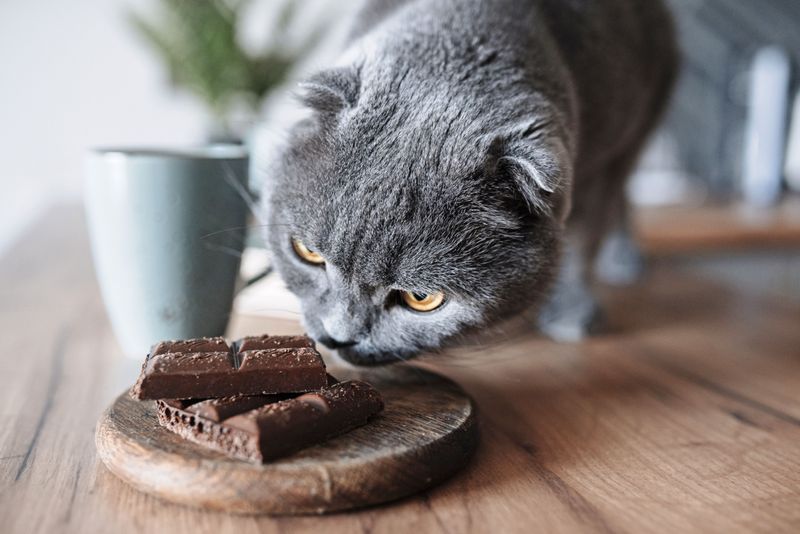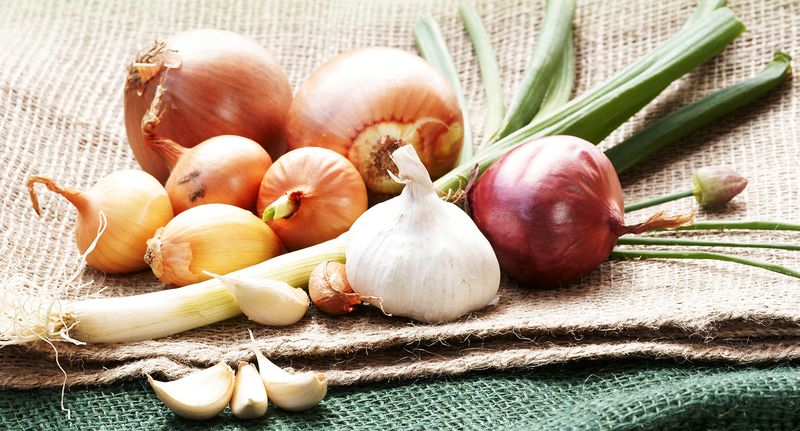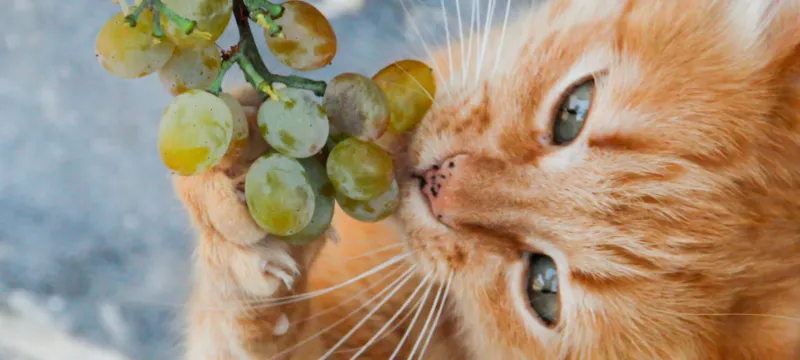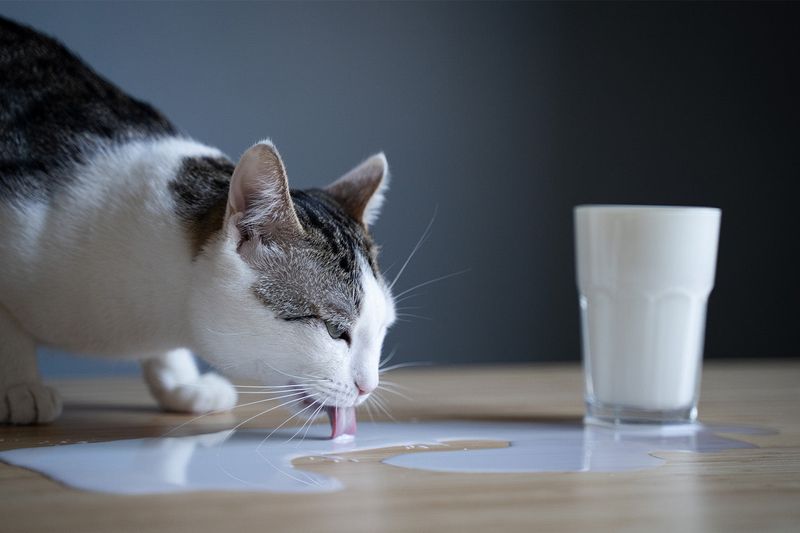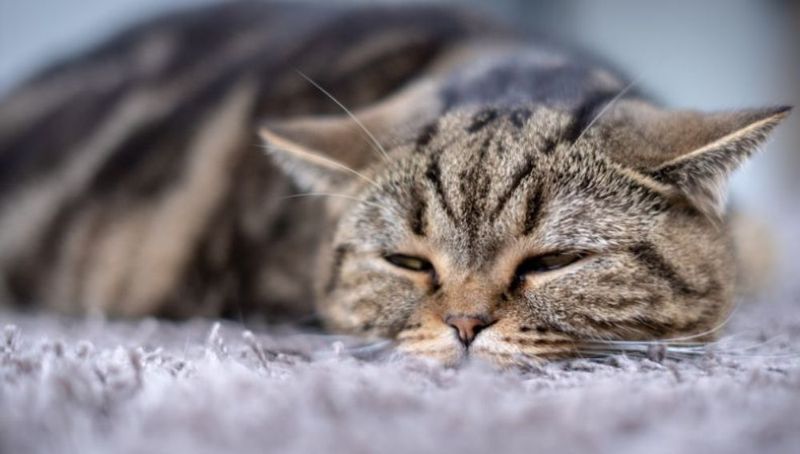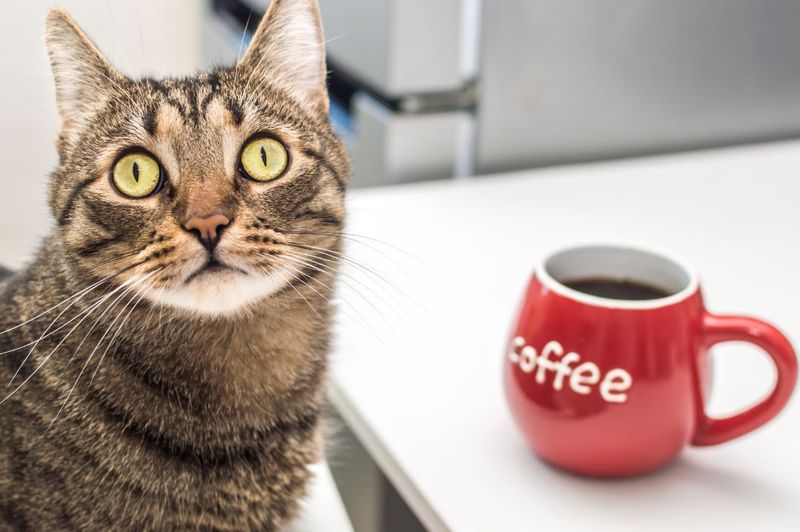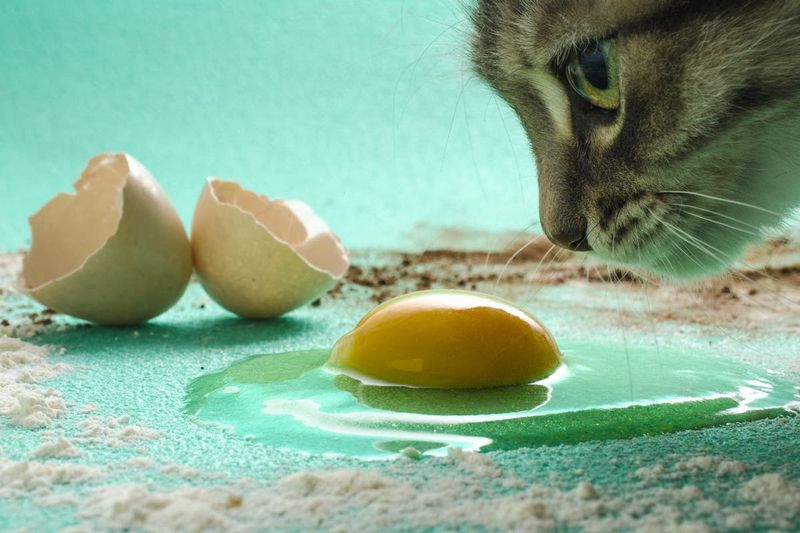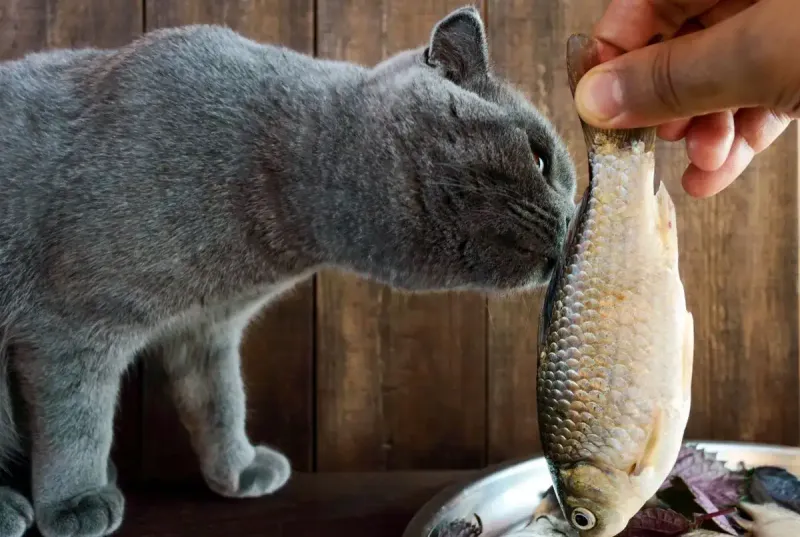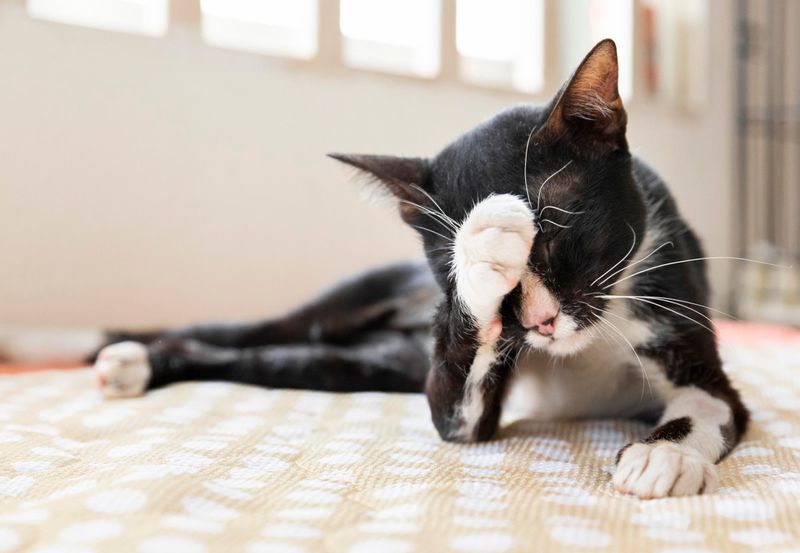📖 Table of Content:
- 1. Chocolate – Sweet Poison
- 2. Onions and Garlic – Hidden Threats
- 3. Grapes and Raisins – Mysterious Toxins
- 4. Dairy Products – Lactose Trouble
- 5. Alcohol – Severe Nervous System Damage
- 6. Caffeine – Heart-Racing Danger
- 7. Raw Eggs – Bacterial Bonanza
- 8. Xylitol – Sweet but Deadly
- 9. Raw Fish – Mercury and Thiamine Troubles
- 10. Fat Trimmings – Pancreatitis Risk
Cats are curious creatures with sensitive digestive systems that don’t always match their food interests. While sharing snacks might seem like a loving gesture, some human foods can cause serious health problems or even prove fatal to our feline friends. Understanding which foods to keep away from your cat is essential knowledge for every responsible pet owner.
1. Chocolate – Sweet Poison
Chocolate contains theobromine and caffeine, compounds that cats simply cannot metabolize. Even small amounts can cause vomiting, diarrhea, rapid breathing, and increased heart rate. Higher doses might lead to seizures or even death.
Dark chocolate and baking chocolate are the most dangerous varieties due to their higher theobromine concentration. The toxic effects can appear within hours of consumption, so immediate veterinary attention is crucial if your cat manages to sneak a bite.
Never leave chocolate unattended, especially during holidays when treats are abundant. What seems like a harmless indulgence to us can be a life-threatening emergency for your furry companion.
2. Onions and Garlic – Hidden Threats
All members of the allium family, including onions, garlic, chives, and leeks, contain compounds that damage feline red blood cells. Consuming these foods can lead to hemolytic anemia, where a cat’s body destroys its own red blood cells.
The danger exists in all forms—raw, cooked, powdered, or even in baby food that contains onion powder. Symptoms might not appear immediately but can include weakness, lethargy, reduced appetite, pale gums, and orange-to-dark red urine.
Many prepared foods contain these ingredients, so always check labels before sharing any human food with your cat.
3. Grapes and Raisins – Mysterious Toxins
Scientists haven’t identified exactly what makes grapes and raisins toxic to cats, but the effects are well-documented. These seemingly innocent fruits can cause sudden kidney failure in felines, even in small amounts.
Warning signs include vomiting within a few hours of consumption, followed by lethargy, reduced appetite, abdominal pain, and decreased urination. Not every cat reacts the same way—some may suffer severe reactions from just a few grapes while others show milder symptoms.
Always keep fruit bowls out of your cat’s reach and be cautious with foods containing raisins like certain breads, cereals, and baked goods.
4. Dairy Products – Lactose Trouble
Despite the popular image of cats lapping up milk, most adult felines are actually lactose intolerant. After weaning, cats lose the enzyme needed to digest lactose, the sugar found in milk and dairy products.
Feeding your cat milk, cheese, ice cream, or yogurt often leads to digestive upset including diarrhea, vomiting, and uncomfortable gas. The rich fat content in many dairy products can also trigger pancreatitis, a painful inflammation of the pancreas.
If you want to treat your cat, look for specially formulated “cat milk” products that have had the lactose removed, or stick to treats designed specifically for feline consumption.
5. Alcohol – Severe Nervous System Damage
Even tiny amounts of alcohol can have devastating effects on your cat’s body. Their small size and inability to process alcohol makes them extremely vulnerable to alcohol poisoning.
Symptoms appear quickly and include disorientation, lethargy, vomiting, and difficulty breathing. In severe cases, alcohol can cause dangerous drops in blood sugar, body temperature, and blood pressure. Seizures, coma, and death can follow without immediate treatment.
Remember that alcohol isn’t just in obvious drinks—it can be found in certain desserts, fermented foods, and even in some medications or mouthwashes. Keep all alcohol-containing products securely stored away from curious paws.
6. Caffeine – Heart-Racing Danger
Coffee, tea, energy drinks, and chocolate all contain caffeine, a stimulant that affects cats much more intensely than humans. Their smaller bodies cannot efficiently process this compound, leading to serious health complications.
Caffeine stimulates the central nervous system and heart, causing restlessness, rapid breathing, heart palpitations, muscle tremors, and seizures. Just a few laps of coffee or tea can be enough to cause toxicity in cats.
Be cautious with caffeine-containing medications, supplements, and even some cold remedies. The effects can be life-threatening, requiring immediate veterinary intervention if ingestion occurs.
7. Raw Eggs – Bacterial Bonanza
Raw eggs present two significant risks to your feline friend. First, they may contain Salmonella or E. coli bacteria that can cause severe food poisoning in both cats and humans. Symptoms include vomiting, diarrhea, lethargy, and fever.
Second, raw egg whites contain a protein called avidin that interferes with biotin absorption, an essential B vitamin. Long-term consumption can lead to skin problems and coat deterioration.
If you want to give your cat eggs, make sure they’re fully cooked without seasonings or oils. This eliminates bacterial risks while preserving protein benefits, making eggs a safer occasional treat when properly prepared.
8. Xylitol – Sweet but Deadly
This sugar substitute found in sugar-free gums, candies, baked goods, and even some peanut butters can cause rapid insulin release in cats. This sudden surge leads to dangerous drops in blood sugar levels, potentially resulting in seizures and liver failure.
Symptoms of xylitol poisoning appear quickly, often within 30 minutes, and include vomiting, loss of coordination, lethargy, and seizures. The liver damage may not be immediately apparent but can develop within days.
Always check ingredient labels, especially on sugar-free products. Keep items containing xylitol stored securely, as even small amounts can be life-threatening to your curious cat.
9. Raw Fish – Mercury and Thiamine Troubles
While cats in cartoons love fish, raw fish presents serious health hazards. It often contains thiaminase, an enzyme that destroys thiamine (vitamin B1), which cats need for proper neurological function and metabolism.
Regular consumption of raw fish can lead to thiamine deficiency with symptoms including neurological problems, seizures, and even coma. Additionally, many fish contain concerning levels of mercury and other environmental contaminants that accumulate in a cat’s system over time.
If you want to treat your cat with fish, stick to occasional servings of well-cooked fish without bones, skin, or seasonings that might cause digestive upset.
10. Fat Trimmings – Pancreatitis Risk
Those fatty bits you trim from your steak or pork chop might seem like a tasty treat for your cat, but they can trigger serious digestive problems. Fatty foods can cause pancreatitis, a painful inflammation of the pancreas that requires immediate veterinary care.
Symptoms include vomiting, abdominal pain, diarrhea, and lethargy. The rich fat content can also lead to obesity and related health issues like diabetes and joint problems. Cooked fat can be particularly dangerous as it may cause intestinal upset or even blockages.
Instead of sharing fat trimmings, offer your cat lean, cooked meat without seasonings as an occasional treat.

